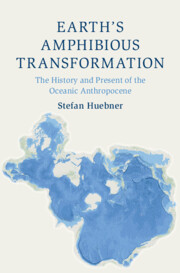Refine listing
Actions for selected content:
142192 results in Open Access
Judging for Democracy
- Principles and Strategies in Hybrid Regimes
- Coming soon
-
- Expected online publication date:
- July 2026
- Print publication:
- 30 June 2026
-
- Book
- Export citation
The Cambridge Handbook of Media Law and Policy in Europe
- Coming soon
-
- Expected online publication date:
- July 2026
- Print publication:
- 31 July 2026
-
- Book
- Export citation

Governing Corporate Knowledge Commons
- Coming soon
-
- Expected online publication date:
- July 2026
- Print publication:
- 31 July 2026
-
- Book
- Export citation
Yugoslav Avant-Garde Music, 1945–1991
- Coming soon
-
- Expected online publication date:
- July 2026
- Print publication:
- 31 July 2026
-
- Book
- Export citation

How Data Need People
- The Social and Epistemic Practice of a Data-Rich Science
- Coming soon
-
- Expected online publication date:
- June 2026
- Print publication:
- 30 June 2026
-
- Book
- Export citation

The Brussels Bubble
- Inside the European Union in the Digital Age
- Coming soon
-
- Expected online publication date:
- June 2026
- Print publication:
- 31 July 2026
-
- Book
- Export citation

Quantile Modeling for Political Research
- Coming soon
-
- Expected online publication date:
- June 2026
- Print publication:
- 30 June 2026
-
- Element
- Export citation
Serving the Christian State in Late Antiquity
- Coming soon
-
- Expected online publication date:
- June 2026
- Print publication:
- 30 June 2026
-
- Book
- Export citation

British Black and Asian Poetry
- Race, Aesthetics and Politics 1970–2023
- Coming soon
-
- Expected online publication date:
- June 2026
- Print publication:
- 30 June 2026
-
- Book
- Export citation

Frail Professionalism?
- Lawyers Ethics after the Post Office and Other Cases
- Coming soon
-
- Expected online publication date:
- June 2026
- Print publication:
- 30 June 2026
-
- Book
- Export citation

Earth's Amphibious Transformation
- The History and Present of the Oceanic Anthropocene
- Coming soon
-
- Expected online publication date:
- June 2026
- Print publication:
- 30 June 2026
-
- Book
- Export citation
Capabilities at Work
- The Added Value of the Capability Model for Well-Being and Work
- Coming soon
-
- Expected online publication date:
- June 2026
- Print publication:
- 30 June 2026
-
- Book
- Export citation

Governance by Emulation
- The Oversight Board, the Digital Services Act, and the Struggle for Platform Accountability
- Coming soon
-
- Expected online publication date:
- June 2026
- Print publication:
- 30 June 2026
-
- Book
- Export citation

The Physics of Interstellar Travel
- Coming soon
-
- Expected online publication date:
- June 2026
- Print publication:
- 30 June 2026
-
- Book
- Export citation
Democratic Representation in International Organizations
- Coming soon
-
- Expected online publication date:
- June 2026
- Print publication:
- 30 June 2026
-
- Book
- Export citation
Policy Dynamics in the European Union
- Coming soon
-
- Expected online publication date:
- May 2026
- Print publication:
- 31 May 2026
-
- Book
- Export citation

Before Recognition
- How the Politics of Religion shaped the International Order
- Coming soon
-
- Expected online publication date:
- May 2026
- Print publication:
- 31 May 2026
-
- Book
- Export citation

Political Lotteries and Democracy
- Coming soon
-
- Expected online publication date:
- May 2026
- Print publication:
- 30 April 2026
-
- Element
- Export citation

Institutional Health Communication in the Information Age
- Coming soon
-
- Expected online publication date:
- May 2026
- Print publication:
- 31 March 2026
-
- Element
- Export citation

Histories of Madness
- Coming soon
-
- Expected online publication date:
- May 2026
- Print publication:
- 31 May 2026
-
- Element
- Export citation
